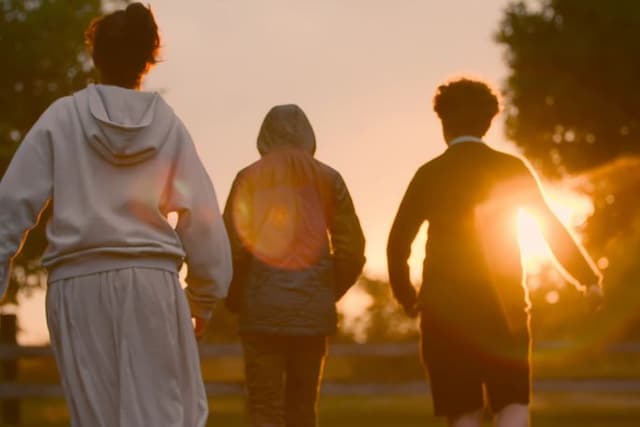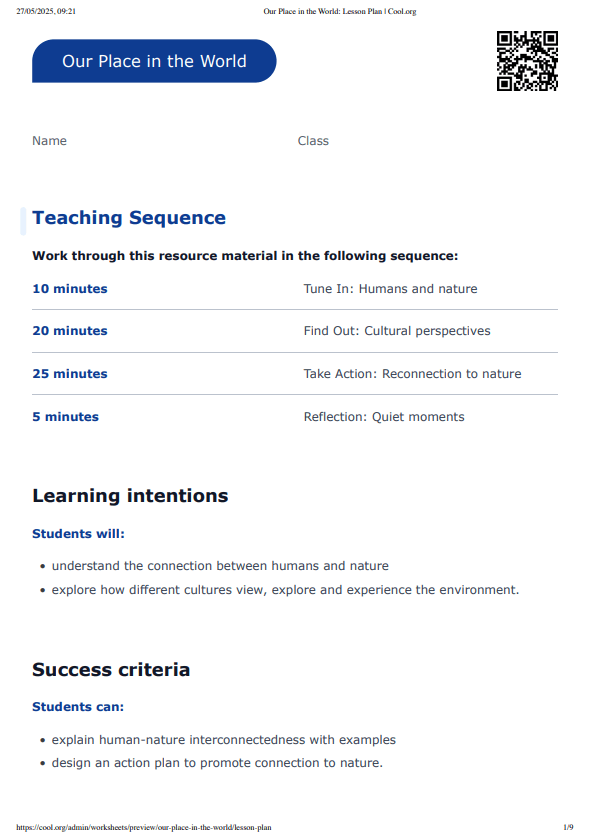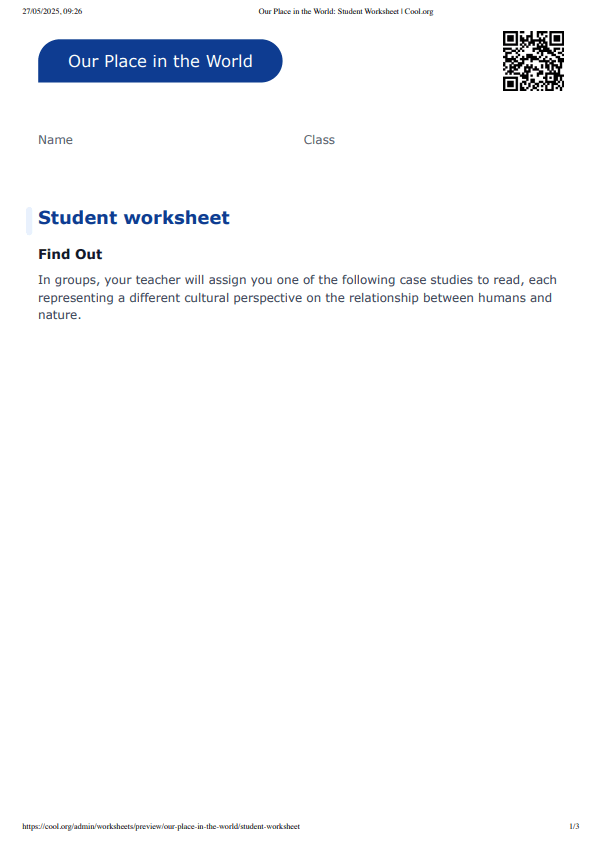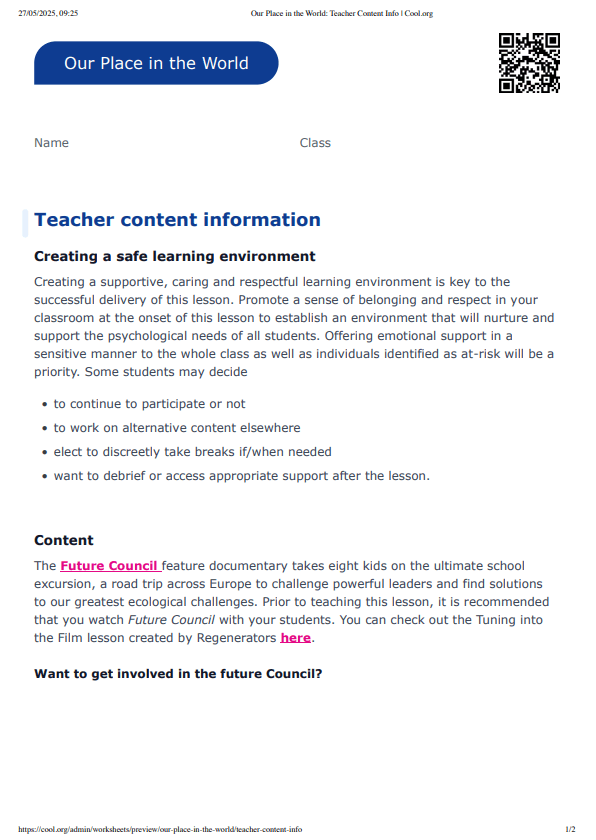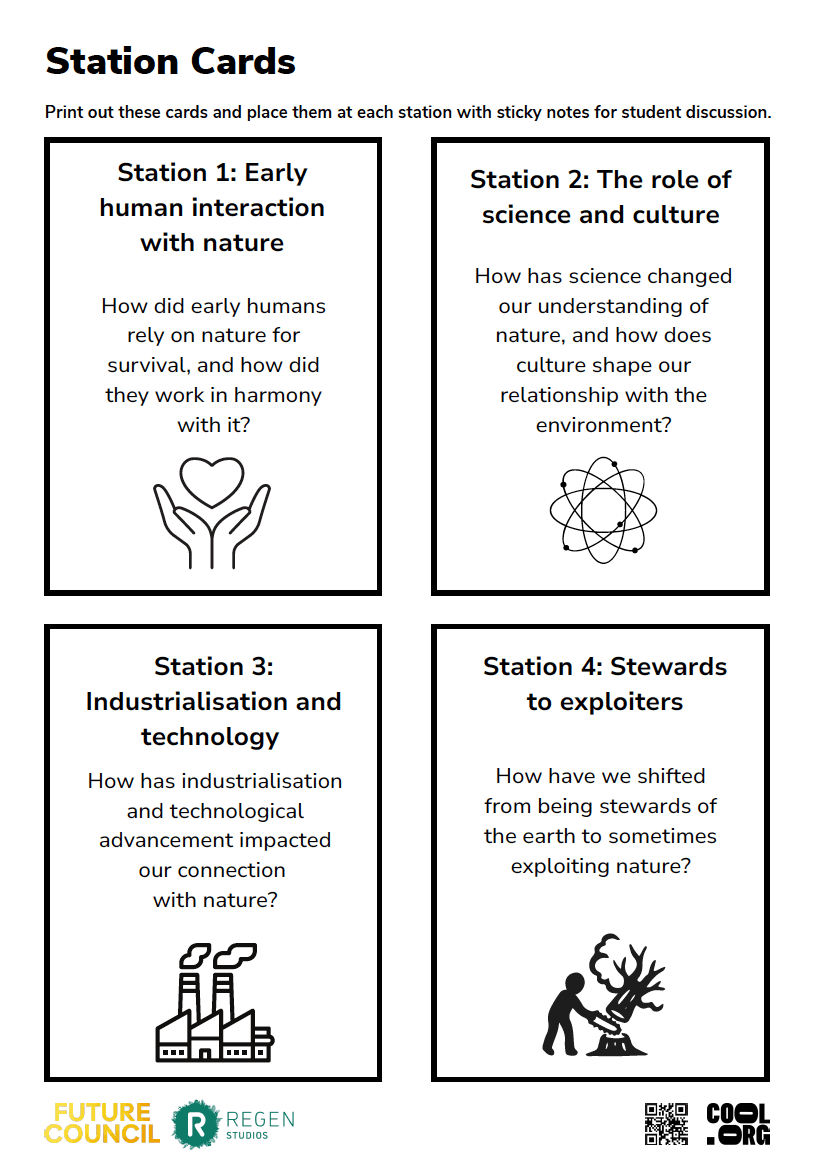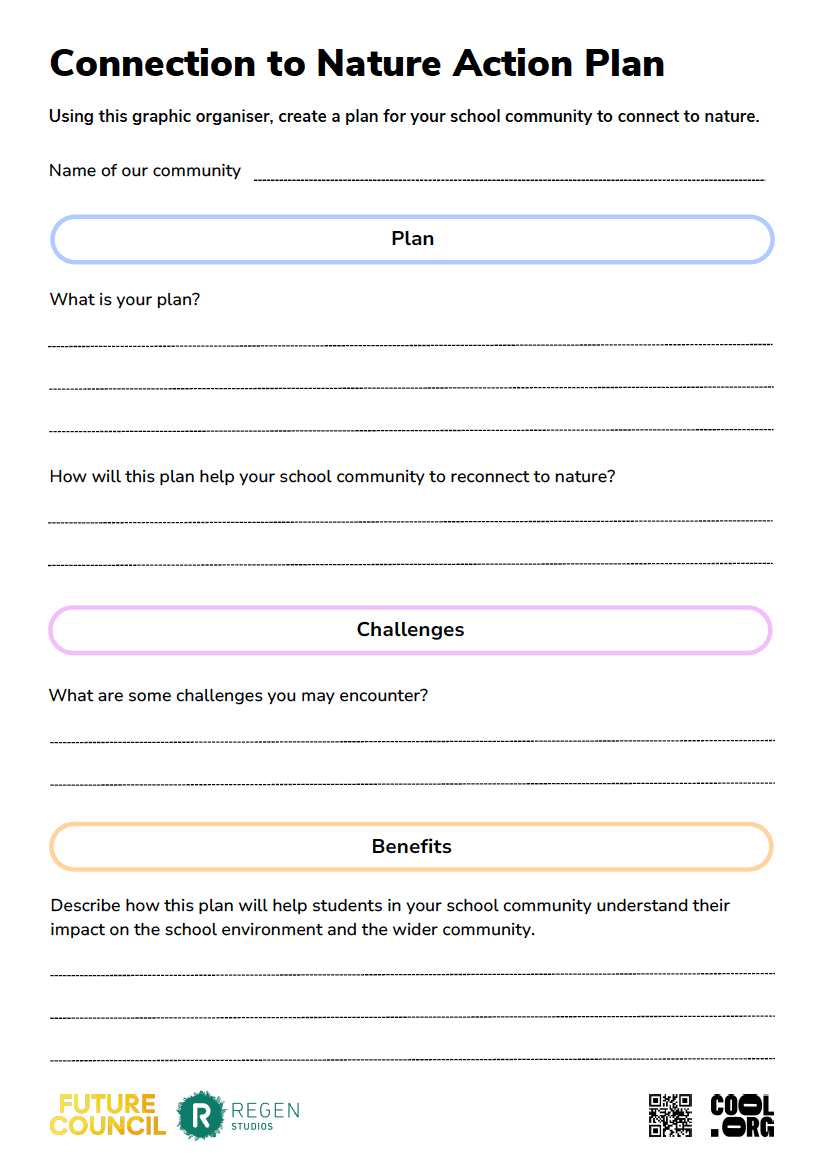Learning intentions
Students will:
- understand the connection between humans and nature
- explore how different cultures view, explore and experience the environment.
Success criteria
Students can:
- explain human-nature interconnectedness with examples
- design an action plan to promote connection to nature.
